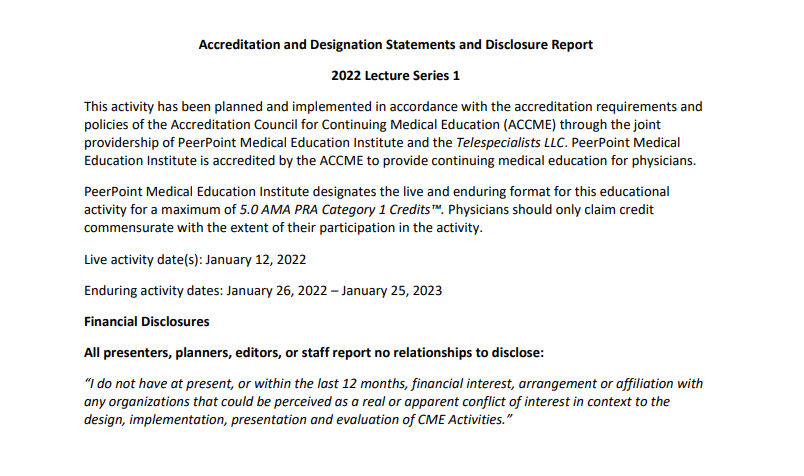
CD-AMC: Catatonia in the Medically Ill - Live
Catatonia remains under recognized in medically ill patients. Further, while is continues to be commonly considered primarily a psychiatric illness, catatonia frequently occurs in association with an underlying medical etiology. The aims of this presentation are to assist participants in:
- More confidently and accurately diagnosing catatonia in medically ill patients
- Better recognition of medical conditions that may co-occur with and lead to the development of catatonia
- Understanding the medical workup that may be appropriate for patients with catatonia
- Choosing the appropriate treatment option for each patient based on clinical response and resource availability
Target Audience
ED Physicians
Internal Medicine Physicians
Nurses
Learning Objectives
Learners will be able to:
- review diagnostic criteria and clinical phenotypes of catatonia
- define appropriate medical workup for patients with catatonia
- identify medical etiologies of and comorbidities with catatonia
- review available treatment options and guidelines for catatonia
Jeremy Parker, MD
Rachel Adelman, MD, MPH
Caitlyn Boyd, MHA, MSN, RN, CPHQ, CPAHA-Telestroke
Theresa Sevilis, D.O.
This nursing continuing professional development activity was approved by the American Association of Neuroscience Nurses, an accredited approver of nursing continuing professional development by the American Nurses Credentialing Center's Commission on Accreditation.
We are working with a Joint Provider to provide CME accredited activities. Please allow up to 10 business days for your instructions on claiming your CME certificate.
Available Credit
- 1.00 Nursing Education Hours
This continuing nursing education activity was approved by American Association of Neuroscience Nurses an accredited approver by the American Nurses Credentialing Center's Commission on Accreditation.
Pharmacology Credit: TeleSpecialists does not issue pharmacology credit. However, specific sessions may be recognized for pharmacology credit by your state nursing board. Contact your state nursing board for further information.
- 1.00 Participation

 Facebook
Facebook X
X LinkedIn
LinkedIn Forward
Forward